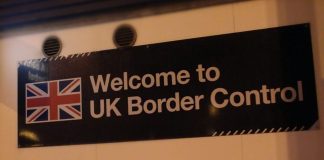Travel can be expensive, whether it’s high gas prices during your road trip or increasing travel demand causing hotel and airline costs to rise. But it doesn’t have to be as costly as you might think with these tips for saving money on travel.
How to save money while traveling
1. Pack light
Packing light is undoubtedly beneficial for avoiding checked bag fees, but there are a few other incentives to do so. For starters, packing light means you can get around a lot easier. With a light suitcase or backpack, you’re more agile, enabling you to navigate public transit rather than feel like you need to pay for a taxi.
So how do you pack light? Bring clothes that you can wash easily in a sink. Look for items that dry quickly, and pick clothes that you can mix and match. Default to basic items that go with pretty much any outfit, so you don’t need to cram four pairs of shoes into your bag.
Plus, packing light means you won’t be tempted to pay for souvenirs — because limited capacity in your suitcase or backpack will deter your urges.
2. Shop at local grocery stores
Visiting local markets can be an adventure on its own. You’ll find different types of foods that you wouldn’t necessarily come across at home. Plus, having food on hand means you’ll likely save money, as you’ll be less tempted to buy the stale, overpriced muffin from the hotel cafe just because you were hungry.
3. Pack snacks
If you can’t visit a local market, packing snacks from home is the next best thing. Look for protein-heavy items like jerky and protein bars, which can make you feel full and not take up too much space in your luggage.
Bottled water can also shape up to be a considerable expense when you’re on the go. Assuming you have access to a clean water source, pack your canteen, and consider a portable water bottle that can collapse to fit in your pocket.
4. Get yourself into the airport lounge
One of the best ways to get food while traveling is at an airport lounge. Many premium travel credit cards offer lounge access as perks, generally through the Priority Pass lounge membership program. Food quality ranges by lounge, but you can usually expect light snacks like fruit, chips, cookies and coffee. The fancier lounges sometimes provide entire buffet meals.
Beyond food, lounges can provide Wi-Fi speeds typically faster than what’s offered in the airport. In addition, some lounges offer showers, exercise rooms or massages. Get to the airport early to maximize the amenities.
5. Arrive early
Leave plenty of time to get to the airport early. If you’re running late, you might hail an overpriced cab in a panic instead of taking public transportation at typically a fraction of the cost. You may also find that rideshare prices could be higher for routes to the airport at certain times. Having more time allows you to avoid the surge pricing.
Don’t risk having to rebook a flight last minute because you arrived late.
6. Get TSA PreCheck or Global Entry membership fees reimbursed
You can speed through airport crowds by applying for either TSA PreCheck or Global Entry. Both are types of Trusted Traveler programs offered by the U.S. Department of Homeland Security.
If approved, you’ll be able to use expedited lanes, which typically have shorter, quicker lines because travelers aren’t forced to remove their shoes, laptops, belts or jackets. According to TSA’s data, 94% of TSA PreCheck passengers waited less than five minutes in December 2021.
Also see: Southwest Airlines to resume in-flight alcohol sales Feb. 16
Certain credit cards will reimburse your application fee, typically $85 for TSA PreCheck or $100 for Global Entry.
7. Take advantage of credit card free night certificates
Some hotel credit cards — even those with sub-$100 annual fees — offer free hotel night certificates. Assuming the value of your hotel room is more than the credit card’s annual fee (which it very easily can be), it could be a smart move to get one of these cards to save some money with a free night stay.
Plus, these cards typically offer extra benefits like elite status, making your stay more enjoyable, and bonus points, which can make future stays free — or at least cheaper.
8. Book hotel rooms on points
Speaking of bonus points, it’s almost always a good idea to spend your hotel points rather than save them. Booking rooms on points versus cash is certainly a smart way to avoid dipping into your cash savings for a vacation, but there are a few other benefits:
You may avoid resort fees: Resort fees (those extra charges that hotels impose to cover extra amenity usages like pools and Wi-Fi) are irritating, and they can sometimes run north of $50 per night. Thankfully, some hotel loyalty programs, including Hilton
HLT,
+0.79%
Honors and World of Hyatt
H,
+1.22%,
don’t charge them for rooms booked on points.
Also on MarketWatch: Robinhood wants to give first-time traders investment advice. Should you take it?
You might get extra discounts: For stays booked on points, you might unlock additional discounts for staying longer. For example, you receive the lowest point-value night free for every five consecutive nights stayed at a Marriott
MAR,
+0.58%
property funded with Marriott Bonvoy points. Hilton has a similar policy where members with at least Silver Elite membership receive the fifth night free when booking on points.
9. Travel during the offseason
If you can travel during the offseason, that’s not only a way to avoid crowds and the headaches that come with them, but you’ll usually be able to get a better deal. A NerdWallet analysis conducted in spring 2021 of over 1,110 airfares found that airfares averaged more expensive for holiday travel than any other booking window.
| Booking window | Average economy class cash airfare |
| 15 days out | $576.51 |
| 180 days out | $464.77 |
| During the holiday season (Dec. 22-29) | $655.32 |
Airfares for flight routes during the holiday season average 41% more expensive than other flights booked roughly six months out during non-holiday seasons.
See: 5 reasons winter is a great time for a vacation
10. Explore tourist attractions that don’t cost you any money
Even trips to notoriously expensive spots like San Francisco, New York City or Walt Disney World don’t have to break the bank.
For example, there are tons of no-cost things to do at Disney World
DIS,
+0.92%.
Ride around the monorail, or watch fireworks from the beach at Disney’s Polynesian Village Resort. In addition, you can find free walking tours in most major cities (though tour guides typically rely on gratuity, so tip accordingly).
Prioritize the free tourist attractions over the ones that have a fee. For example, tickets to San Francisco’s de Young Museum cost about $15, but you can go to one of its coolest rooms, the Hamon Observation Tower, for free panoramic views of the city.
And while there are dozens of excellent cultural institutions in St. Louis, start at the ones that have free admission, including the Saint Louis Art Museum, Saint Louis Science Center and Saint Louis Zoo. If time permits, then turn to the attractions with a fee.
Check out: Get away to a warm a weekend in Scottsdale, Arizona—what to do and where to stay, eat, and shop
The bottom line
Travel costs can add up. Your vacation might not be as cheap as that slick airfare deal may have led you to believe when you factor in other expenses. Often, vacation spending can rocket past your initial budget once you’re out on the road.
Saving money on travel with these tricks can give you more freedom to spend where you need, whether that’s on this trip or your next one.
More From NerdWallet
Sally French writes for NerdWallet. Email: sfrench@nerdwallet.com. Twitter: @SAFmedia.
Unlock the world’s wonders with unforgettable journeys tailored just for you! Whether you crave sun-kissed beaches, thrilling adventures, or rich cultural escapes, your dream destination awaits. Enjoy seamless travel with expert tips, exclusive deals, and handpicked experiences that Turn Every Trip into a lifetime memory.










